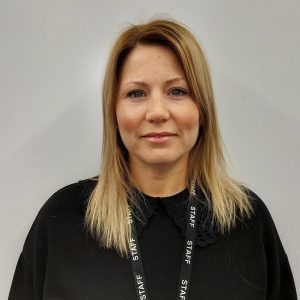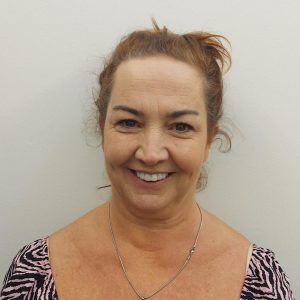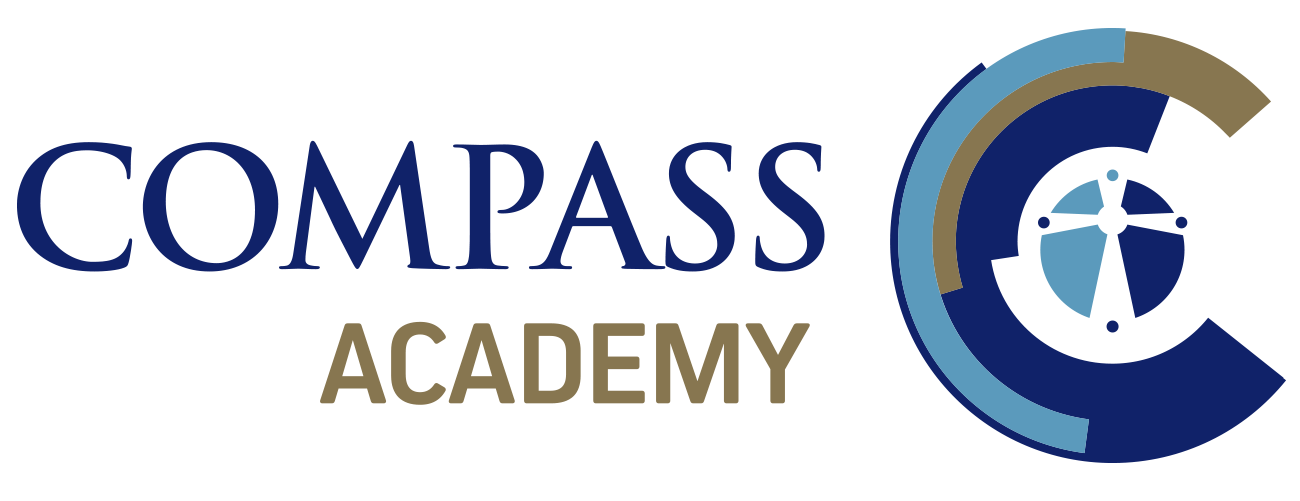The Compass Academy works to ensure every pupil is safe and protected from harm. The Compass Academy believes this is a shared responsibility and this is reliant upon effective collaborative working between agencies and professionals. The Compass Academy fully recognises the contribution it can make to protect children from harm and supporting and promoting the welfare of all.
The focus of Safeguarding within The Compass Academy is prevention, protection and support. The Compass Academy recognises that children sometimes suffer abuse from those responsible for caring and protecting them. Abuse can take place within any socio-economic group, it can occur at home or within institutions such as academies.
Parents and carers may choose to take up the offer of support to educate their children at home, from online companies and in some cases individual tutors.
If you do, it is important to secure online support from a reputable organisation/individual who can provide evidence that they are safe and can be trusted to have access to children.
Support for parents and carers to keep their children safe online includes:

Chris Sumpton:
Assistant Vice Principal
Designated Safeguarding Lead
c.sumpton@com.hslt.academy

Kim Brown:
Assistant Vice Principal
Trauma Informed Lead
k.brown2@com.hslt.academy

Debbie Coyle:
Deputy Designated Safeguarding Lead
Family Liaison Officer
d.coyle@com.hslt.academy
When new staff, volunteers or regular visitors join our Academy they will be informed of the safeguarding arrangements in place.
All new appointments are made with a member of staff certified by the DfE in ‘Safer Recruitment in Education’. Every new member of staff or volunteer will have an induction period including the training in essential safeguarding information.
All regular visitors and volunteers to The Compass Academy are told where our policy can be accessed. They are provided with a set of safeguarding procedures. This policy is referred to in our Academy prospectus and parents are reminded about it through Academy communications. The policy is revisited and updated and amended when necessary.
When new pupils join our academy, all parents and carers are informed that we have a safeguarding policy. This is available as a hard copy to parents should they request a copy. You can request a hard copy by contacting Kim Brown or Debbie Coyle at The Compass Academy. Please email hello@com.hslt.academy
The Children’s Act 1989, section 27 and 47, and the Children’s Act 2004 state that: it is the duty of the schools to act “…to safeguard and promote the welfare of children who are in need”.
Safeguarding and promoting the welfare of children is defined as: ‘Protecting children from maltreatment, preventing impairment of children’s health and development, ensuring that children are growing up in circumstances consistent with the provision of safe and effective care and undertaking this role so as to enable those children to have optimum life chances and to enter adulthood successfully.’
Effective child protection is essential to safeguard and promote the welfare of children. All agencies should aim to proactively safeguard and promote the welfare of children so that the need for action to protect children from harm is reduced.
Peer on peer abuse can include: all forms of bullying, being coerced into sending sexual images (sexting), physical or sexual assaults, child sexual exploitation or teenage relationship abuse.
Peer on peer abuse is a defined safeguarding issue and should be responded to in the same way as any other concern about a child. If both parties are children, then any safeguarding actions should cover both the victim and alleged perpetrator. This is most likely to include, but may not be limited to:
– bullying (including cyberbullying);
– physical abuse such as hitting, kicking, shaking, biting, hair pulling, or otherwise causing physical harm;
– sexual violence, such as rape, assault by penetration and sexual assault;
– sexual harassment, such as sexual comments, remarks, jokes and online sexual harassment, which may be standalone or part of a broader pattern of abuse;
– upskirting, which typically involves taking a picture under a person’s clothing without them knowing, with the intention of viewing their genitals or buttocks to obtain sexual gratification, or cause the victim humiliation, distress or alarm;
– sexting (also known as youth produced sexual imagery); and
– initiation/hazing type violence and rituals (KCSiE 2019)
The Compass Academy educates pupils on the impact of peer on peer abuse through a comprehensive PSHE curriculum to minimise the risk of peer on peer abuse. Staff are vigilant and are trained to spot the peer on peer abuse. Allegations are recorded on ‘Peer on Peer Abuse’ form and are required to pass this to the Designated Safeguarding Lead/Deputy safeguarding lead, all incidents are investigated and appropriate actions taken. Any action taken is taken with consideration of how best to support the victim and perpetrator. A referral to the Emotional Well being officer will be made who will work with all parties. We understand the gendered nature of peer on peer abuse (i.e. that it is more likely that girls will be victims and boys perpetrators), but that all peer on peer abuse is unacceptable and will be taken seriously.
This is against the law yet for some communities it is considered a religious act and cultural requirement. It is illegal for someone to arrange for a child to go abroad with the intention of having her circumcised. If any of the above areas of concern is brought to the attention of The Compass Academy, we will report those concerns to the appropriate agency in order to prevent this form of abuse taking place.
Academy staff can play an important role in preventing self-harm and supporting pupil, peers and parents currently engaging in self-harm.
Any member of staff who is aware of a pupil engaging in or suspected of being at risk of engaging in self-harm should always consult with the Child Protection Co-ordinator. Pupils need to be made aware that it may not be possible for staff to offer complete confidentiality. If you consider a pupil is a serious risk of harming themselves then confidentiality cannot be kept.
At the Compass Academy, we assist our children to become more resilient to the messages of violent extremists through creating an environment where all young people learn to understand others, value and appreciate diversity and develop skills to be able to debate. Through the balanced curriculum we offer we will help young people to learn and explore the values of different faiths in cultures.
Where a member of staff has concerns regarding radicalism or extremist behaviour, a cause for concern form should be completed on the academy CPOMS system. Alternatively, the member of staff, or the Child Protection Co-ordinator will refer the concern to Humberside Police. A referral should be emailed to: prevent@humberside.pnn.police.uk
Both CSE and CCE are forms of abuse and both occur where an individual or group takes advantage of an imbalance in power to coerce, manipulate or deceive a child into sexual or criminal activity. Whilst age may be the most obvious, this power imbalance can also be due to a range of other factors including gender, sexual identity, cognitive ability, physical strength, status, and access to economic or other resources. In some cases, the abuse will be in exchange for something the victim needs or wants and/or will be to the financial benefit or other advantage (such as increased status) of the perpetrator or facilitator. The abuse can be perpetrated by individuals or groups, males or females, and children or adults. The abuse can be a one-off occurrence or a series of incidents over time, and range from opportunistic to complex organised abuse. It can involve force and/or enticement-based methods of compliance and may, or may not, be accompanied by violence or threats of violence. Victims can be exploited even when activity appears consensual and it should be noted exploitation as well as being physical can be facilitated and/or take place online.
Indicators can be similar to those for sexual abuse but may also include:
– Changes in friendships groups
– Secretive and sometimes hostile behaviour when questioned
– Changes in appearance
– Missing from home, care or education
– Access to unexplained money or presenting with items that they do not have the money to buy
– Physical injuries
– Decline in academic performance
– Self-harming
– Emerging mental health issues
Operation Encompass is a Police and Education early intervention safeguarding partnership which supports children and young people exposed to domestic abuse.
Operation Encompass is the reporting to schools before the start of the next school day when a child or young person has been involved or exposed to a domestic abuse incident the previous evening.
The information is given in strict confidence to a school’s Key Adult to enable support to be given dependent on the needs and wishes of the child.
Operation Encompass is a Trauma Informed and Trauma Sensitive charity. We acknowledge and understand the impact of Domestic Abuse as an Adverse Childhood Experience.
Operation Encompass mitigates against the damaged caused by exposure to Domestic Abuse and other ACE’s
It is important that we see mental health just as important as physical health. If your child is struggling with their mental health, it can be a really upsetting and worrying time. In reality, most people struggle at some point in their lives.
We have a strong pastoral team who are responsible for ensuring that students are supported with issues around behaviour, self-esteem, anxiety, bullying, and friendship issues.
Here are some useful links that may help support you and your child:
YoungMinds: www.youngminds.org.uk
Young Minds is the UK’s leading charity which is committed to improving mental health and emotional wellbeing of young people and parents/carers.
Childline: 0800 1111 (call free)
Childline offers free, confidential counselling advice for anyone under the age of 19
This site offers a range of services in Hull that support parents/carers and young people with mental health and emotional wellbeing support.
Kooth provides free online counselling support for young people. Support is offered online via a chat based service.
CAMHS (Child and Adolescent Mental Health Service) is part of The NHS which provides support and treatment for you people to manage behavioural, emotional and mental health difficulties.
01482 303 688 (office hours 9am-5pm)
Out of office hours support is available through The CAMHS Crisis Team 01482 301701 (option2).
To view our Safeguarding and Child Protection Policy please visit our Policies page.
Keeping Children Safe in Education 2024
What to do if you’re worried a child is being abused
Working Together to Safeguard Children

